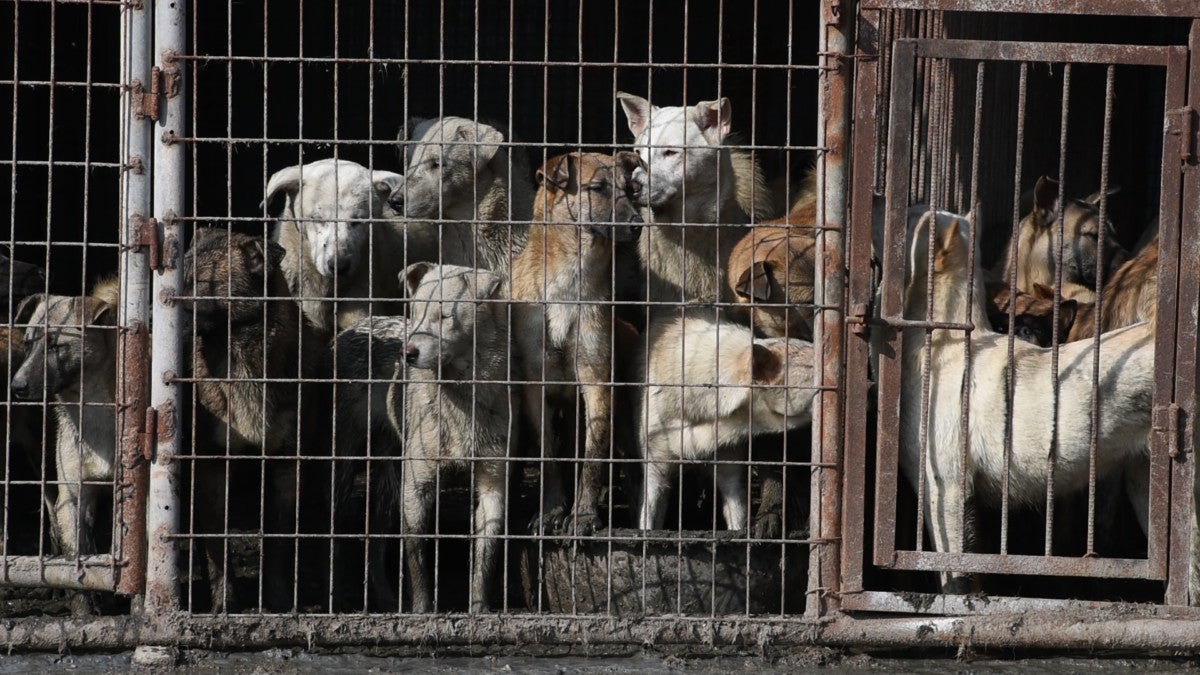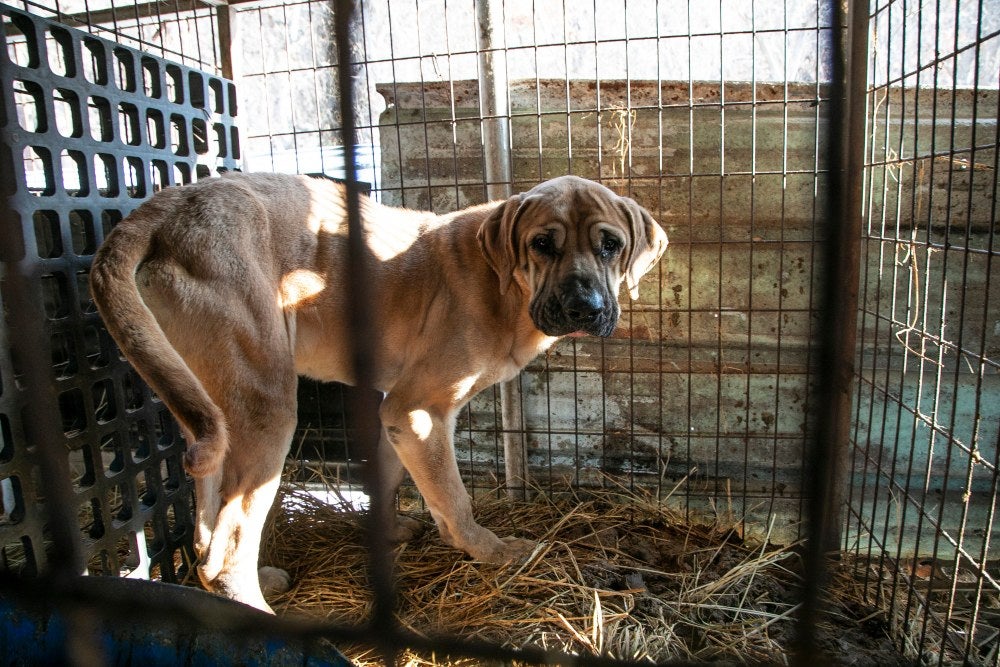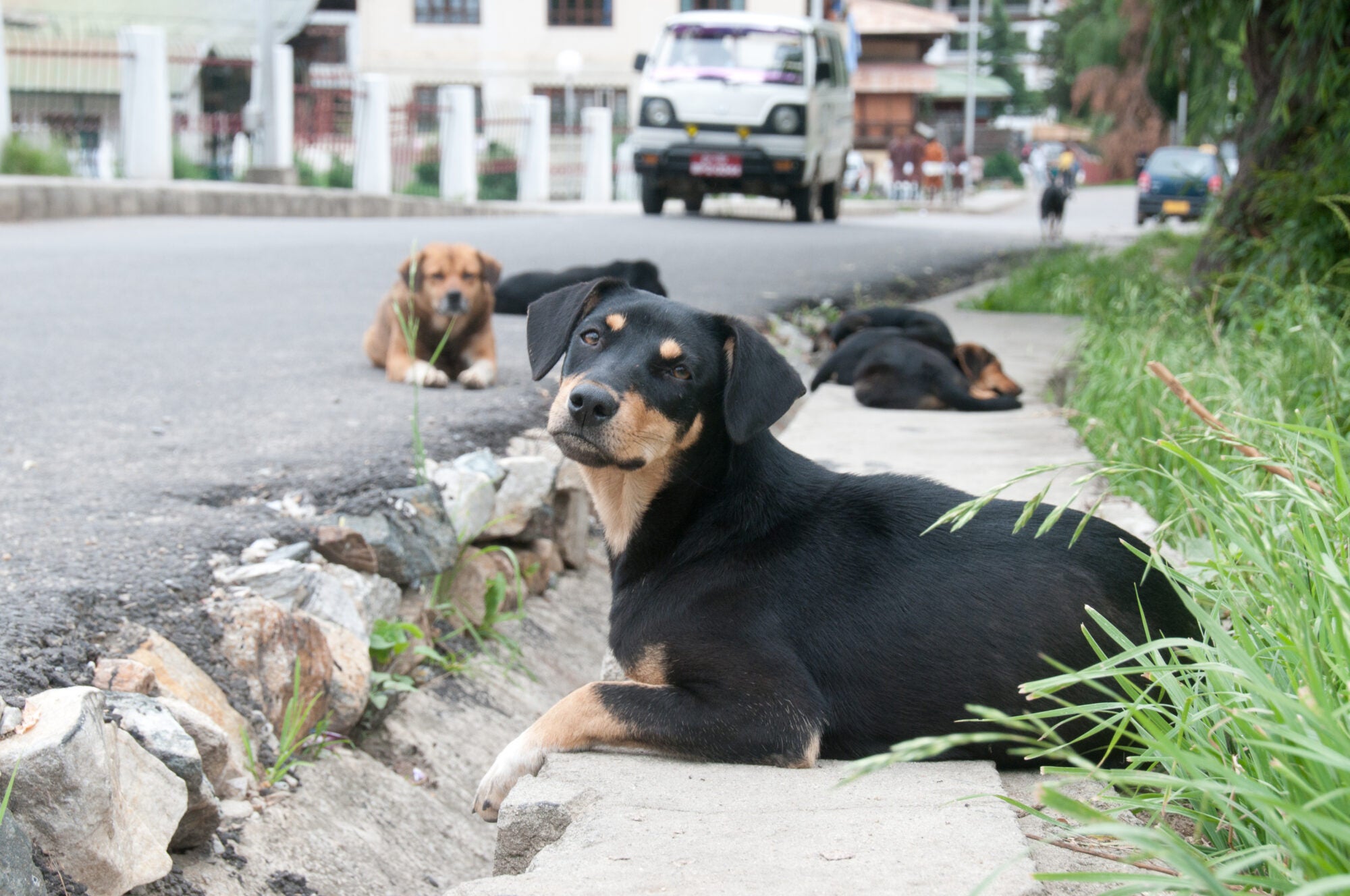
SEOUL—In an historic announcement, the South Korean government has stated that before the end of this year it will introduce a bill to ban the dog meat industry, which sees up to 1 million dogs a year farmed and killed for human consumption. At a meeting in Seoul today between the Ministry of Agriculture, Food and Rural Affairs, representatives of the ruling Peoples Power Party and Korean animal groups including Humane Society International/Korea, a government bill was confirmed with a three-year phase out period once legislation is passed, meaning the ban would come into effect in 2027.
Compensation will be offered to help legally registered dog meat farmers, traders, slaughterers and restaurant owners transition or close their businesses, similar to the Models for Change program run by HSI/Korea, which has worked with 18 dog farmers across the country since 2015 to switch to growing chili plants or parsley delivering water and other livelihoods.
This news follows considerable public and political momentum for a ban, including the introduction of five legislative bills by National Assembly Members. The news is welcomed by HSI/Korea, one of the leading animal groups campaigning for an end to dog meat nationwide.
JungAh Chae, executive director of Humane Society International/Korea, who attended the meeting with MAFRA, says: “News that the South Korean government is at last poised to ban the dog meat industry is like a dream come true for all of us who have campaigned so hard to end this cruelty. Korean society has reached a tipping point where most people now reject eating dogs and want to see this suffering consigned to the history books. With so many dogs needlessly suffering for a meat that hardly anyone eats, the government’s bill delivers a bold plan that must now urgently be passed by the Assembly so that a legislative ban can be agreed as soon as possible to help South Korea close this miserable chapter in our history and embrace a dog friendly future.”
With growing concern for animal welfare, and over 6 million pet dogs now living in Korean homes, demand for dog meat has dwindled. Latest opinion polls by Nielsen Korea commissioned by HSI/Korea show that 86% of South Koreans won’t eat dog meat in the future and 57% support a ban.
HSI recognizes that a short phase out period is an inevitable consequence of dismantling the trade and helping farmers and traders transition to other livelihoods. However, HSI urges the government to use the phase out period to work with animal welfare groups like HSI/Korea to rescue as many dogs as possible in a state-sponsored, co-ordinated effort.
HSI/Korea’s Models for Change program has rescued more than 2,700 dogs from dog farms across South Korea who have found adoptive homes in the United States, Canada, the United Kingdom and the Netherlands, with a small number rehomed in South Korea. Most of the farmers with whom HSI/Korea has worked experience mounting societal, family and financial pressure to get out of farming dogs.
Kitty Block and Jeff Flocken, respectively CEO and president of HSI globally, issue a joint statement, saying: “This is a momentous day for HSI’s campaign to end the horrors of the dog meat industry in South Korea, and one we have been hoping to see for a very long time. Having been to dog meat farms and seen HSI/Korea’s Models for Change program in action, we know only too well the suffering and deprivation these desperate animals endure in the name of an industry for whom history has now thankfully called time. This is the beginning of the end of dog meat farming in South Korea, and HSI stands ready to contribute our expertise until every cage is empty.”
Dog meat facts:
- Although most people in South Korea don’t eat dog, the belief that dog meat soup (bosintang) will cool the body and build stamina during the hot summer, particularly during Bok Nal season spanning July and August, still holds with some, especially the older generation.
- Most dogs slaughtered for meat in South Korea are killed by electrocution although some are also hanged.
- Dog meat is banned (with varying degrees of enforcement) in Hong Kong, Taiwan, the Philippines, India, Thailand and Singapore, as well as the cities of Shenzhen and Zhuhai in mainland China, Siem Reap province in Cambodia, and 32 cities and regencies as well as the province of DKI Jakarta in Indonesia.
- Despite these growing bans, an estimated 30 million dogs a year are still killed for meat across Asia.
Download here video and photos of HSI/Korea’s dog meat farm closure program in action
ENDS
Media contact:
- South Korea: JungAh Chae, director HSI/Korea, jchae@hsi.org
- United Kingdom: Wendy Higgins, director international media, whiggins@hsi.org






